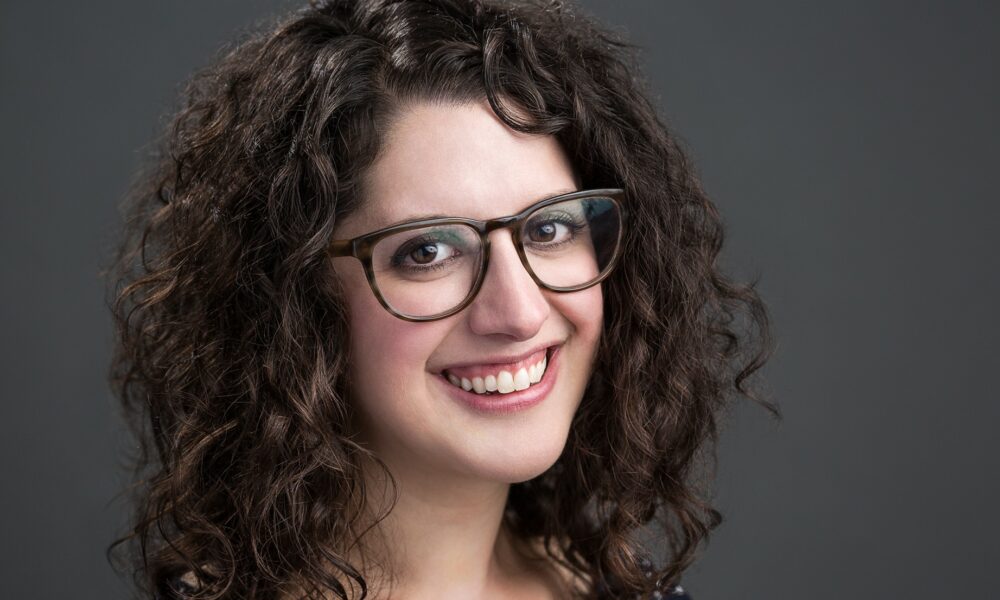

Today we’d like to introduce you to Frannie Shepherd-Bates.
Hi Frannie, can you start by introducing yourself? We’d love to learn more about how you got to where you are today.
I learned a bit about theatre for social justice while I was studying acting at Wayne State University. Fast forward a few years, and I discovered Shakespeare Behind Bars, the oldest program of its kind in the United States. I was intrigued and excited by how useful incarcerated participants found Shakespeare in their own personal journeys, and I decided that, when the time was right, I would pursue that type of work. Fast forward another few years, and the program I hoped to facilitate was approved to begin at Women’s Huron Valley Correctional Facility.
From its first moments, Shakespeare in Prison operated from a philosophy of radical collaboration: there was no one leader (including me), and all decisions were made by the ensemble as a whole. The women who were part of the group developed every aspect of the program by trial, success, and, sometimes, error. Eventually, Shakespeare in Prison grew to include a team of facilitators, and, for a time, workshops with youth and an incarcerated men’s ensemble. We moved from the small theatre company where we began (which I had co-founded) to Detroit Public Theatre in 2015. And we began working with alumni after their release from prison in 2018 through a program they developed and named Shakespeare Reclaimed.
The Covid-19 pandemic has been a challenge, to be sure. We have not yet been able to resume our work with the women’s ensemble, though we are hopeful that the facility will be ready for programs like ours soon. We have been working hard out here on many projects with alumni, and we are beginning to make connections with people and organizations working in reentry, post-release, and advocacy. It’s an exciting time for Shakespeare in Prison.
Would you say it’s been a smooth road, and if not, what are some of the biggest challenges you’ve faced along the way?
Facilitating a program in a carceral environment is, by its very nature, challenging. Prison is at once rigid and chaotic, and we prioritize flexibility and adaptability at all times. Challenges include things as straightforward as restrictions on certain kinds of costumes and props, to more complex things like attrition, which can be positive (i.e., someone taking a college class or being paroled) or not so positive (i.e., someone being removed from the group due to a disciplinary infraction).
On the outside, there are many challenges inherent in working with formerly incarcerated people simply because of the many challenges they face, including finding housing, employment, and solid support networks. We endeavor to support alumni as much as possible—that’s what we’re there for—but as a theatre, there’s only so much we can do. We are working on building our network of organizations who provide direct services so we can quickly refer alumni when something arises that is outside our lane. And we’re exploring ways that theatre can raise awareness and help shift culture to better support returning citizens.
As you know, we’re big fans of you and your work. For our readers who might not be as familiar what can you tell them about what you do?
My artistic background is in various aspects of theatre, mainly directing, performance, sound design, and choreography. In addition to my work with professional artists, I’ve done a lot of work in educational environments with people of all ages. The work that I’m most proud of, and most known for, is my work as a carceral theatre practitioner and director of Shakespeare in Prison. The program has been innovative in many ways, including in its insistence on radical collaboration, methods of decolonizing Shakespeare, self-study, and reporting of outcomes, and the development of the manuscript for the first annotated edition of Shakespeare by incarcerated and formerly incarcerated people (currently seeking a publisher). And I’m very proud of the relationships I continue to have with SIP alumni, people whom I’ve seen do incredible things in extraordinarily challenging circumstances. I’m proud to know them, and I’m proud that they continue to include me in their lives.
Are there any important lessons you’ve learned that you can share with us?
My answer to this questions seems to change every time it comes up! This time around, I’d say the most important lesson I’ve learned is to listen attentively and respond intentionally—to be responsive to the needs of the people with whom I work rather than operating from my own artistic experience or worldview. I haven’t ever been incarcerated, so what do I know, truly, about living that experience? My job is not to tell anyone what to do or what to think about Shakespeare or anything else. My job is to support people as they do the incredibly difficult work of reframing their experiences and redefining who they are so they can feel better and do better. It’s a really cool job, and one I’m profoundly grateful to be able to do.
Contact Info:
- Website: www.detroitpublictheatre.org/shakespeareinprison
- Instagram: https://www.instagram.com/shakesinprison/
- Facebook: https://www.facebook.com/shakespeareinprison
- Twitter: https://twitter.com/ShakesinPrison
- Youtube: https://www.youtube.com/playlist?list=PLVMHAWQBkExWKhPtt8AR2bH6wj8lvabmO
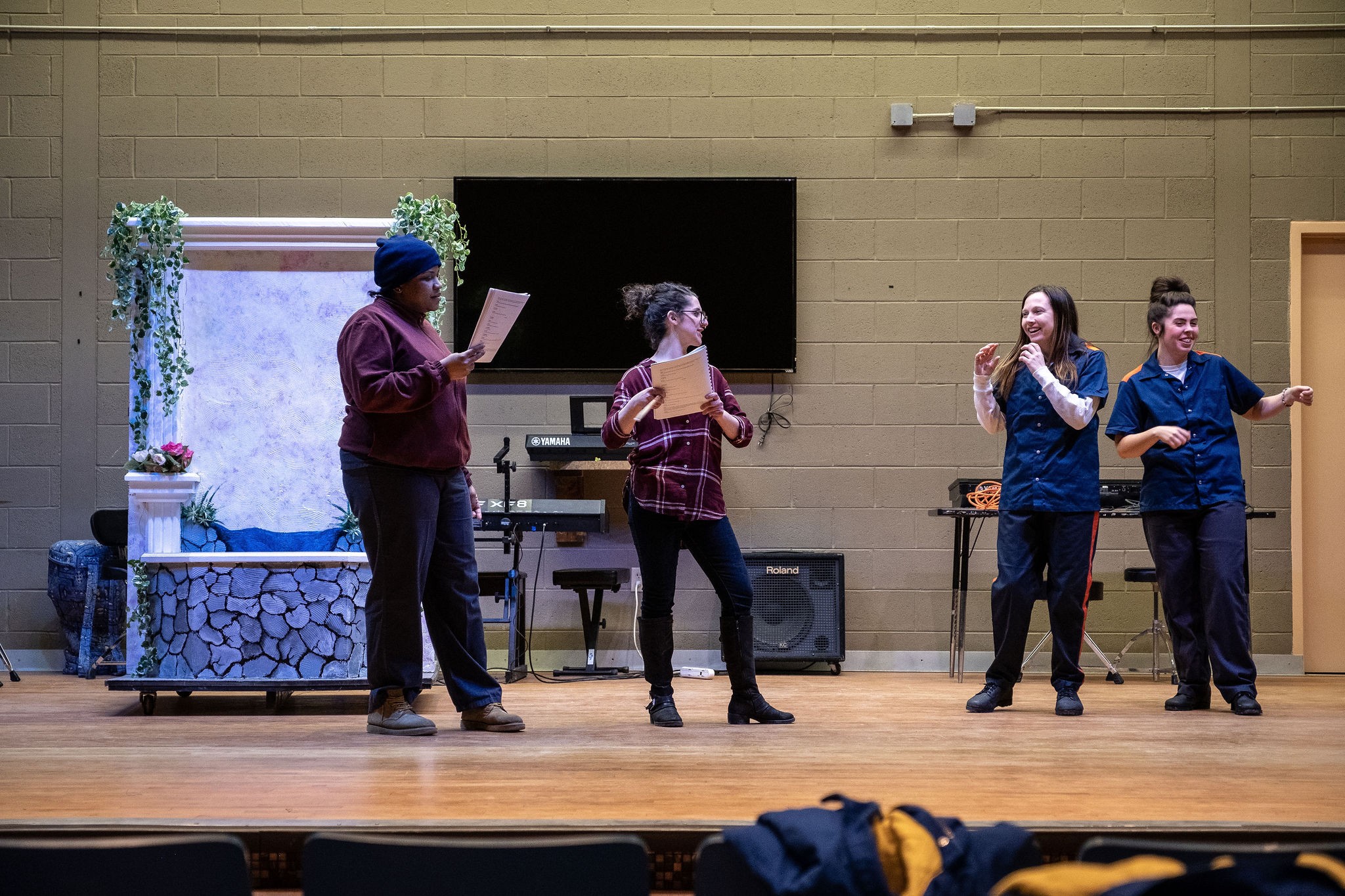
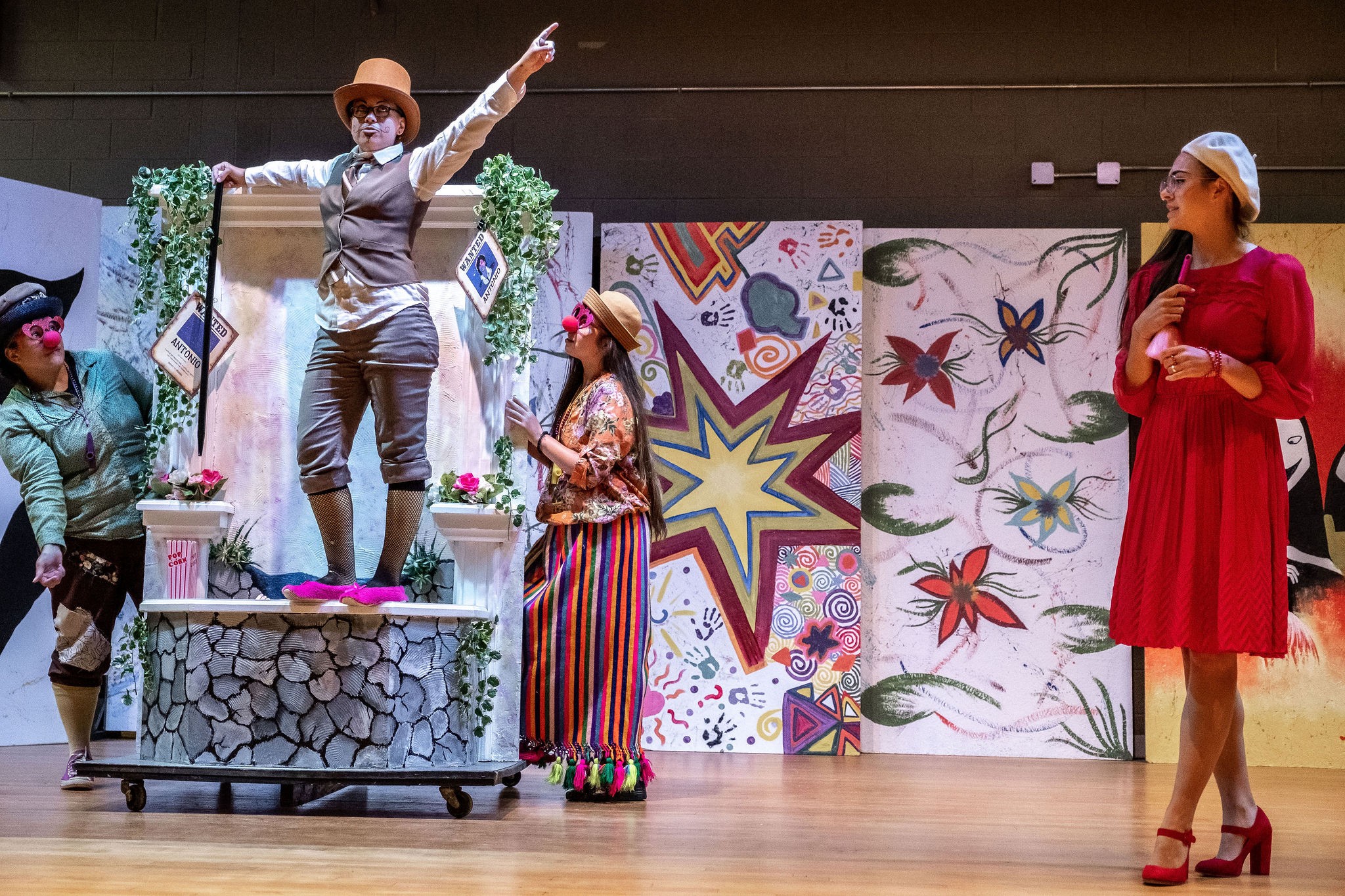
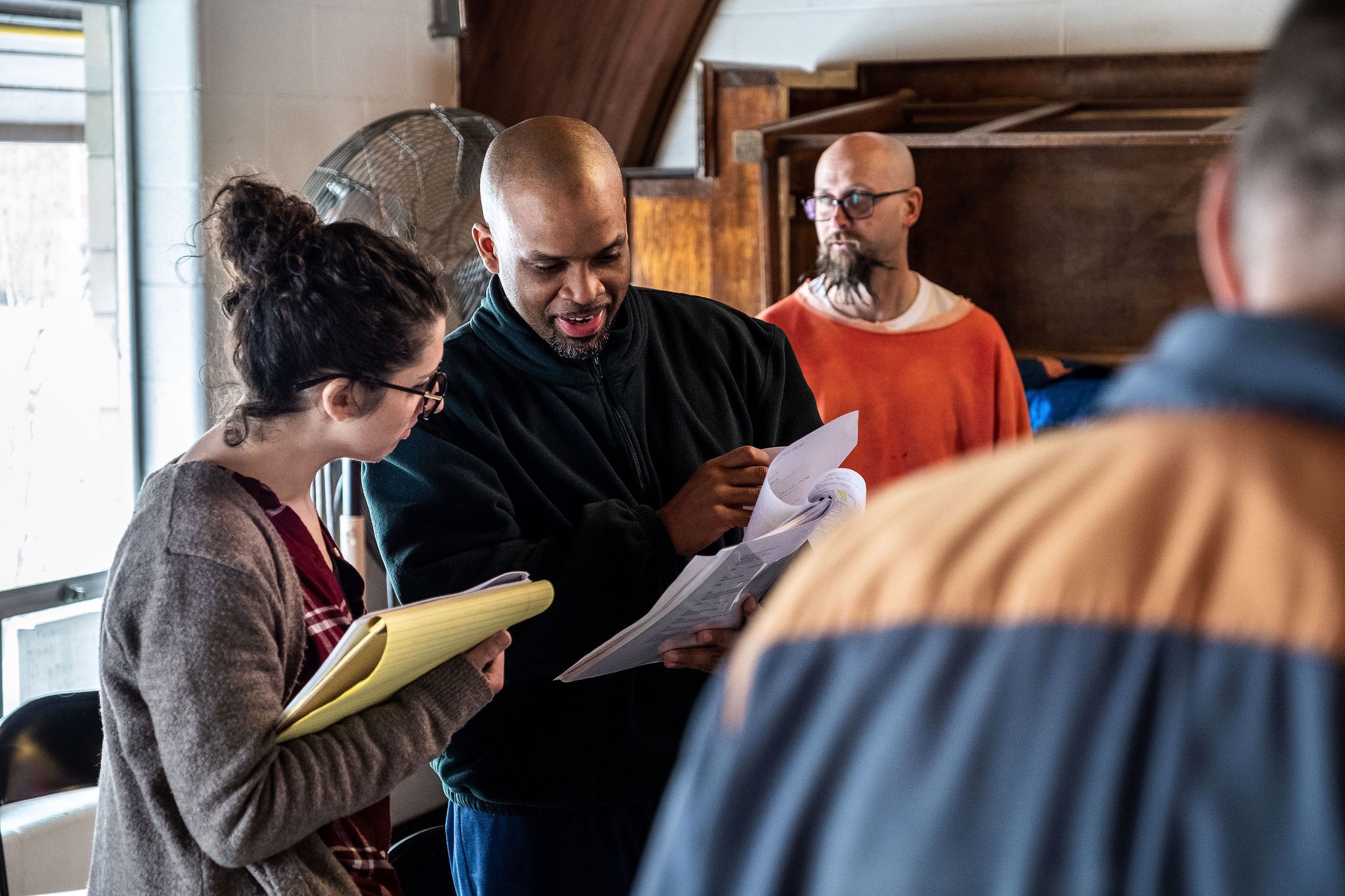
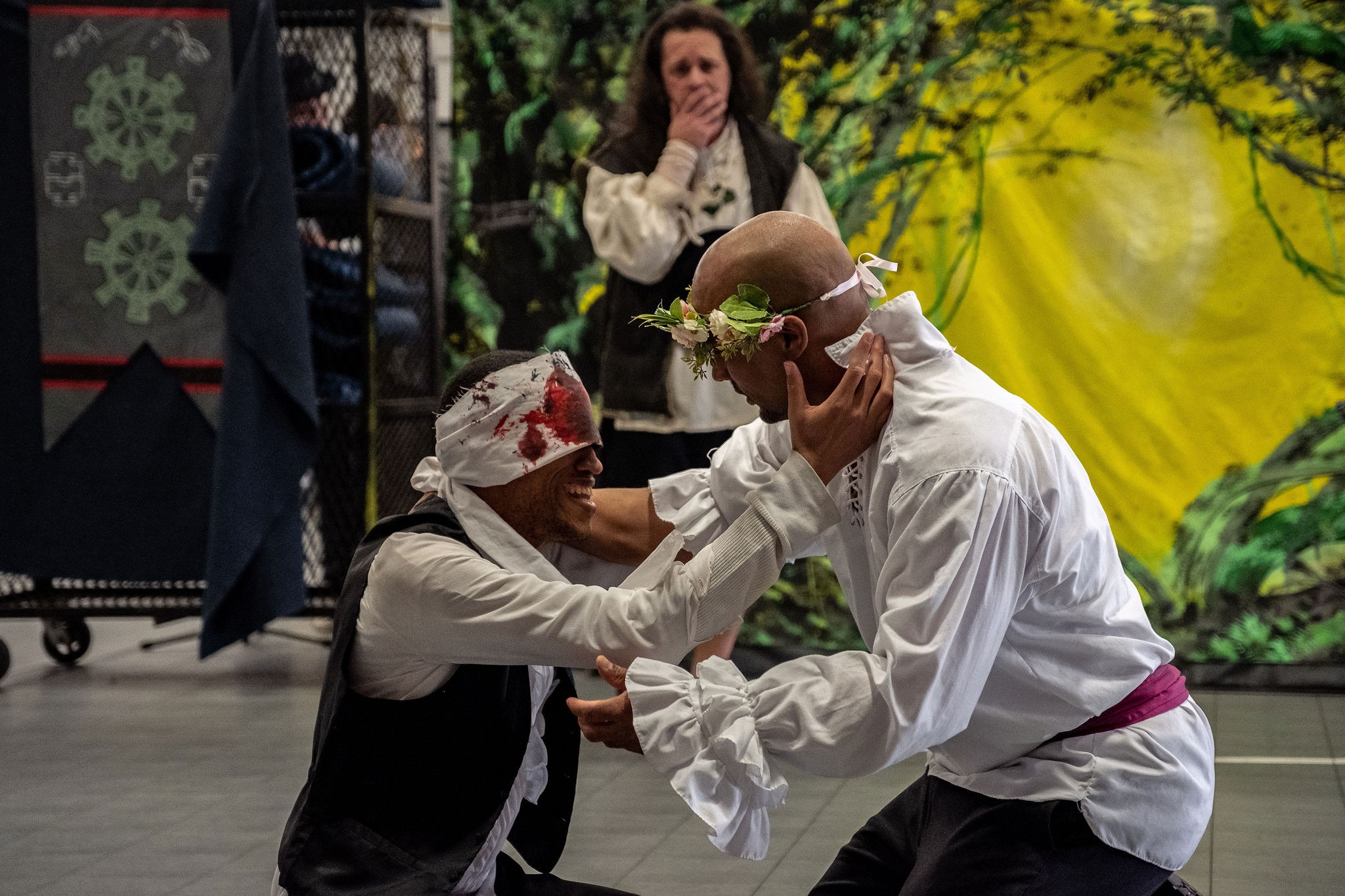
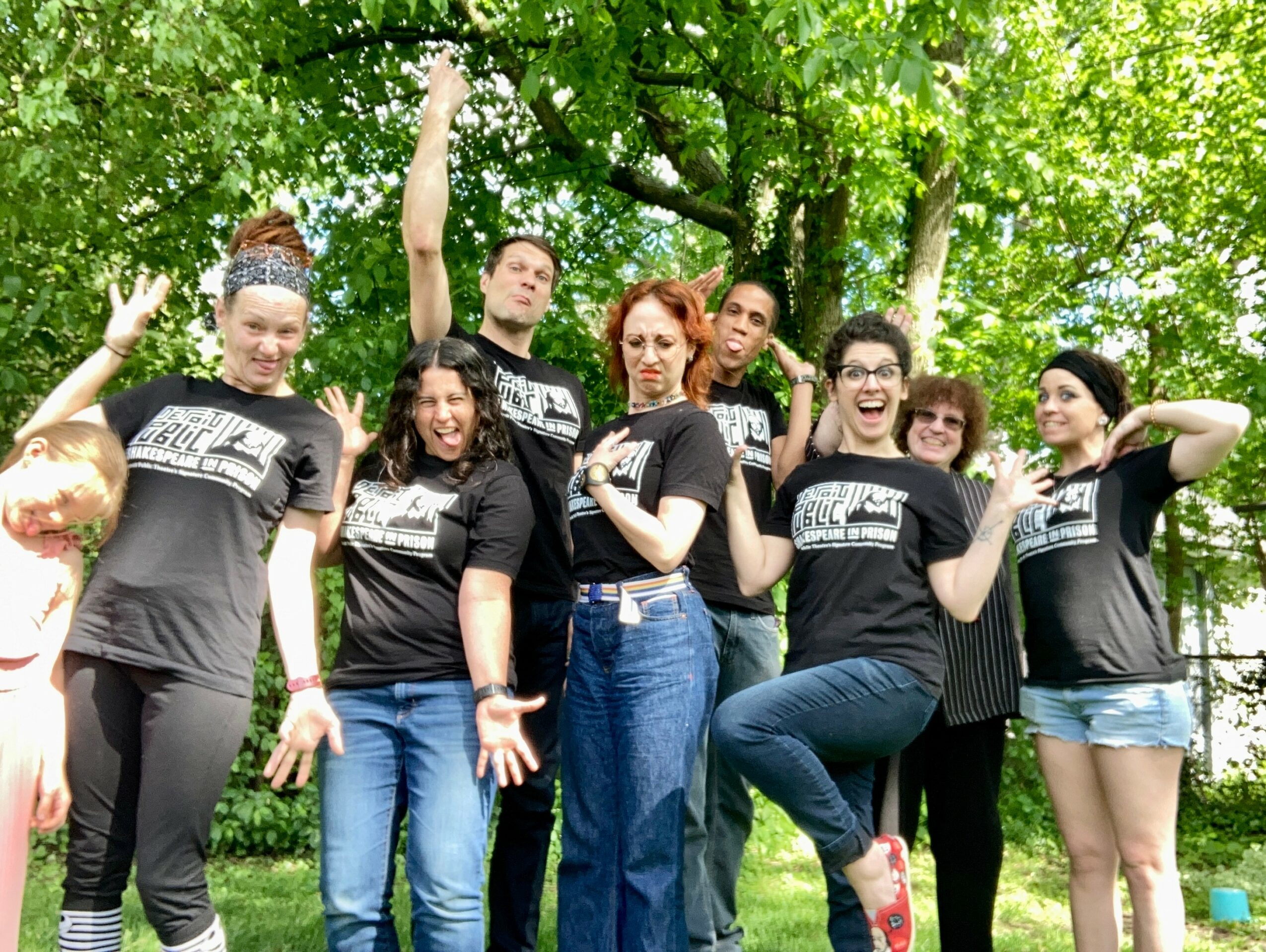

Image Credits
Chuk Nowak











